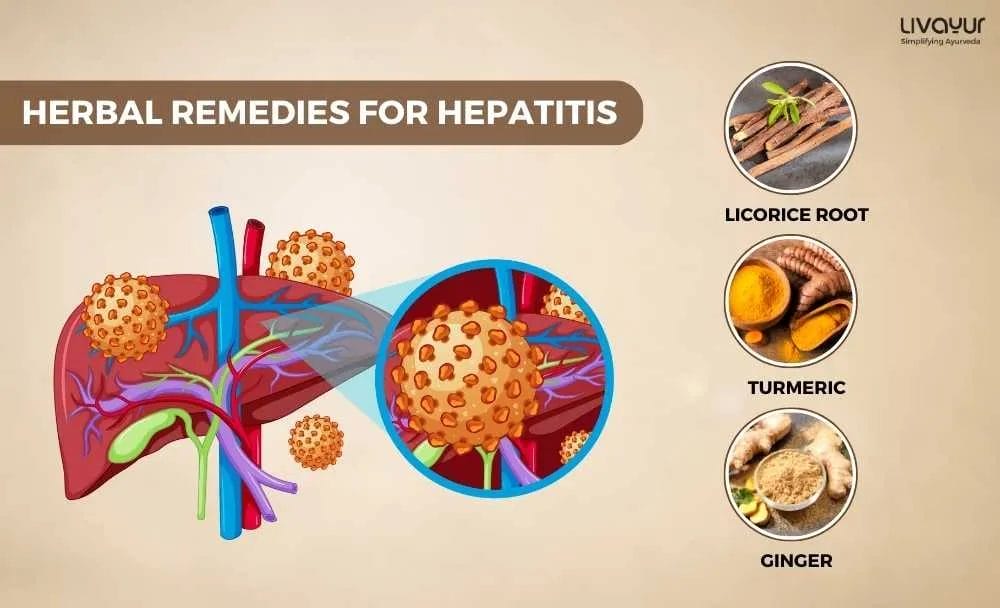Reviewed by Dr. Vipin Bihari Sharma
Hepatitis is a liver inflammation caused by a viral infection or exposure to harmful substances like drugs or alcohol. The symptoms can vary from mild to severe; the condition can be acute (short-term) or chronic (long-term).
There are several types of hepatitis, including A, B, C, D, and E. Each type has its unique causes, symptoms, and treatments; some are more common than others. This article covers everything you need to know about hepatitis, including its definition, symptoms, types, causes, and treatment options. So, let’s get started.
What is hepatitis?
Hepatitis is a medical condition characterised by liver’s inflammation. [1] The term “hepatitis” is derived from the Greek word “hepar,” which means liver, and “itis,” which means inflammation. [2] So, quite literally, hepatitis means liver inflammation. When the liver gets inflamed, it can’t function properly, leading to health issues.
It’s important to note that non-viral factors, such as heavy alcohol use or exposure to toxins, can also cause hepatitis. These types of hepatitis are referred to as “non-viral hepatitis” and can cause similar symptoms to those caused by viral hepatitis. [1]
What are the types of hepatitis?
Here are the five main types of hepatitis: A, B, C, D, and E. A different virus causes each type, and they have unique characteristics. [1]
- Hepatitis A
- Hepatitis B
- Hepatitis C
- Hepatitis D
- Hepatitis E
In addition to these five types of viral hepatitis, there are also several types of non-viral hepatitis. Non-viral hepatitis can be caused by heavy alcohol use, exposure to certain toxins, or other medical conditions. [1]
What are the symptoms of hepatitis?
The symptoms of hepatitis can vary depending on the type of virus and the severity of the infection. However, some common symptoms can occur with hepatitis A, B, and C.
Hepatitis A symptoms
The symptoms include fever, loss of appetite, nausea, abdominal pain, dark urine, and yellowing of the skin and eyes (jaundice). [3]
Hepatitis B symptoms
Many people with hepatitis B don’t experience symptoms and may not even know they’re infected. However, some people with acute hepatitis B may experience fatigue, nausea, vomiting, abdominal pain, dark urine, and jaundice. [4]
Hepatitis C symptoms
Like hepatitis B, many people with hepatitis C don’t experience symptoms. When symptoms do occur, they can include fatigue, fever, nausea, vomiting, abdominal pain, dark urine, and jaundice. [5]
What are the causes of hepatitis?
Let’s look at the causes of hepatitis A, B, and C.
Hepatitis A causes
It is due to the hepatitis A virus, which typically spreads through contaminated food or water, poor personal hygiene, and oral-anal sex. [3]
Hepatitis B causes
It happens due to the hepatitis B virus, which transmits through contact with infected blood, needlestick injury, perinatal transmission, and sexual transmission. [4]
Hepatitis C causes
It is due to the hepatitis C virus, which transmits through contact with infected blood, inadequate sterilisation of medical equipment, and sexual practices involving blood exposure. [5]
Diagnosis of Hepatitis
To diagnose hepatitis, the following are necessary:
- Physical examination, which might or might not show an enlarged, bloated liver
- Blood tests for the presence of any of the five hepatitis-causing viruses as well as liver enzymes, which are increased in cases of liver damage or infection
- Liver ultrasound to identify any alterations
- When other tests yield conflicting results, a liver biopsy is used to confirm inflammatory suspicions and assess the precise extent of liver damage.
Tips To Prevent Hepatitis
Several viruses are known to cause hepatitis, which refers to inflammation of the liver. You may lower the risk of getting hepatitis by avoiding risky behaviours and taking the following measures:
- Get the vaccines for hepatitis A and hepatitis B.
- Use a condom during sex.
- Don’t share needles, razors or blades.
- Practise good personal hygiene, such as thorough hand-washing with soap and water.
- Take precautions when getting any tattoos or body piercings.
- Take precautions when travelling to areas of the world with poor sanitation. Make sure to get your vaccines.
- Drink bottled water when travelling.
Complications Of Hepatitis You Need To Know
The following are some of the most common and fatal complications of hepatitis:
1. Fibrosis
Fibrosis is a disorder brought on by liver scarring and it is among the most frequent side effects of chronic hepatitis.Fibrosis is referred to as cirrhosis if it progresses and broadens.
2. Cirrhosis of the Liver
Cirrhosis is the term for extensive fibrosis. Hepatitis B and C can result in fatty liver disease, cirrhosis, and other liver-related disorders. Scarring resulting from cirrhosis is frequently irreversible.
3. Liver Failure
Liver failure is a serious complication of hepatitis.1 Doctors use different terms to describe variations of liver failure, such as fulminant liver failure, fulminant hepatic failure, or acute liver failure. If your liver no longer functions, your body will shut down, which is eventually fatal.
4. Portal Hypertension
Blood filtration is one of the liver’s vital functions. Nevertheless, the portal circulatory system of the liver can be disrupted by cirrhosis and other issues. Portal hypertension is the term for the condition that results from blocking this portal system, which prevents all blood from the digestive system from returning to the liver and causes an increase in blood pressure.
When To See A Doctor
Many people with hepatitis will not have any symptoms at all. However, you need to see your doctor as soon as possible if you have any of these symptoms:
- Dark urine
- Stomach pain
- Yellowing of skin or eyes
- Pale or clay-coloured stool
- Low-grade fever
- Loss of appetite
- Fatigue
- Feeling sick to the stomach
Diet and lifestyle changes to cure hepatitis
The ayurvedic treatment of hepatitis focuses on restoring balance to the body and promoting overall health and well-being.
For hepatitis A, Ayurveda recommends a diet that is light, easy to digest, and low in fat. It may include foods like rice, steamed vegetables, and light soups. Herbal remedies like ginger, turmeric, and licorice root may help support liver function and promote healing. [6]
For hepatitis B and C treatment, Ayurveda recommends a more intensive treatment approach. It includes a diet low in fat and high in fiber, along with herbal remedies like ginger, turmeric, and licorice root to help support liver function and promote detoxification. [6] Yoga poses like Uddiyana BaddhaKonansana and Mayurasana also help promote liver function. [7]
FAQs
1. What is hepatitis meaning?
Hepatitis is liver inflammation that happens due to viral infection or other factors such as alcohol consumption and certain medications. [1]
2. What is Hepatitis B?
Hepatitis B is a viral infection affecting the liver and is transmitted through blood and bodily fluids. It can cause acute or chronic liver disease and serious health complications. [4]
3. Is hepatitis b curable?
Hepatitis B can be managed with antiviral medications and Ayurveda treatments.
Conclusion
Whether you’re looking to prevent hepatitis, seeking treatment for a current infection, or simply interested in learning more about this condition, it’s important to stay informed and take steps to protect your health.
Remember, prevention is always the best approach when it comes to hepatitis. This may include vaccinating against hepatitis A and B, practicing safe sex, and avoiding sharing needles or other drug injection equipment.
If you think you may have hepatitis or have been exposed to the virus, it’s important to seek medical attention immediately. With proper diagnosis and treatment, most cases of hepatitis can be successfully managed and treated, allowing you to live a healthy and fulfilling life.
Disclaimer: The information provided here is not intended to replace professional medical advice or treatment.
References:
- What is Viral Hepatitis?
- What is Hepatitis?
- Hepatitis A. 24 June 2022
- Hepatitis B. 24 June 2022
- Hepatitis C. 24 June 2022
- Food and Nutrition in the Pathogenesis of Liver Damage. 16 April 2021
- Introducing Yoga and Pranayam for Library and Information Science Professionals for Stress Free and Healthy Life: A Proposal.
- https://www.hopkinsmedicine.org/health/conditions-and-diseases/hepatitis#:~:text=The%20following%20are%20required%20to,the%20five%20viruses%20causing%20hepatitis
- https://my.clevelandclinic.org/health/diseases/4245-hepatitis-viral-hepatitis-a-b–c
- https://www.verywellhealth.com/complications-of-hepatitis-1759905
- https://www.webmd.com/hepatitis/understanding-hepatitis-treatment



















